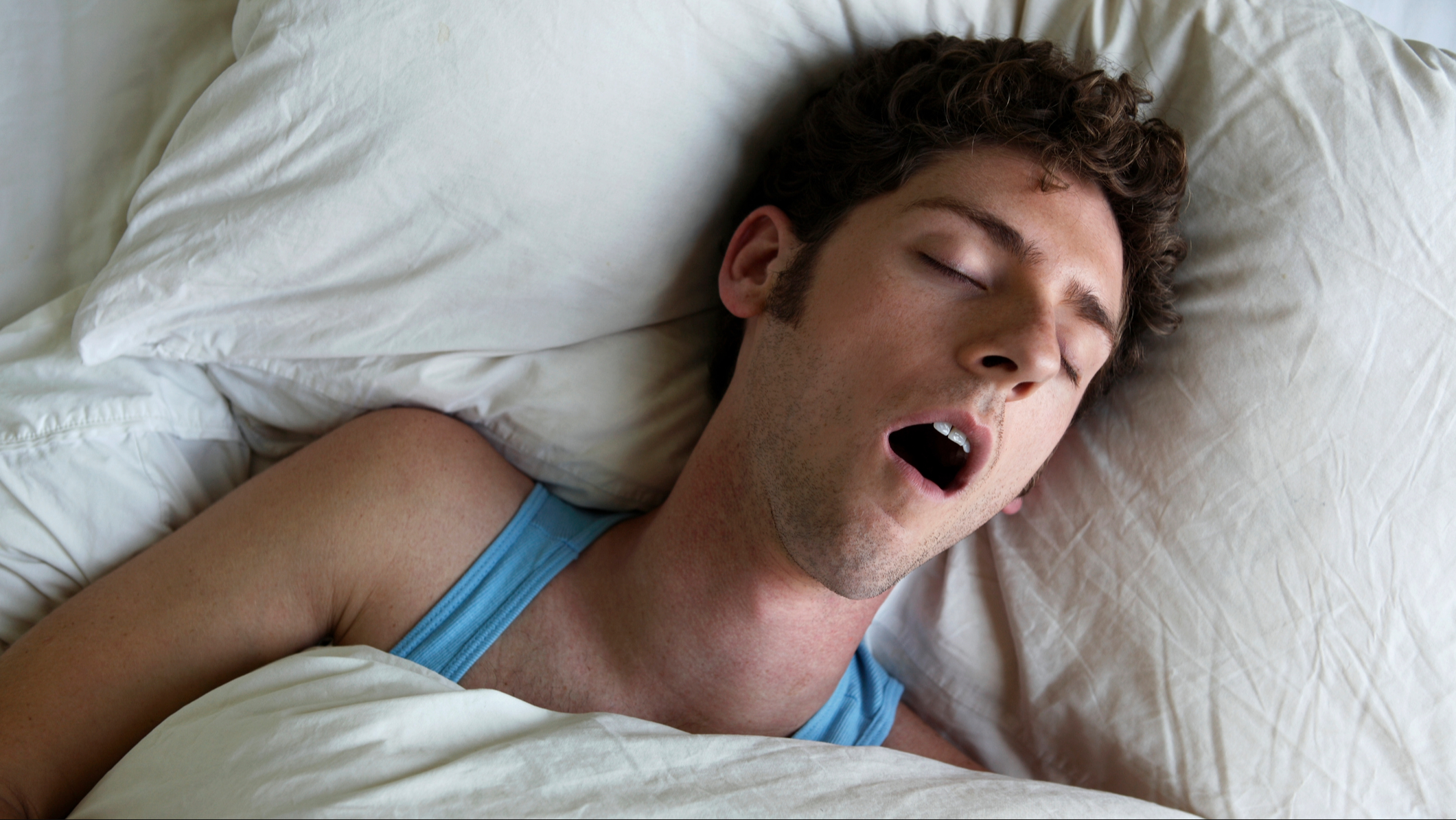What is obstructive sleep apnea and how do you know if you have it?
How to tell if you have Obstructive Sleep Apnea, plus what to do next

Obstructive Sleep Apnea is a common sleep disorder that is characterized by brief interruptions to your breathing during sleep. In the US, statistics show that between 25-30% of male adults and 9-17% of female adults have the sleep disorder. However, it is estimated that as many as 80% of people with obstructive sleep apnea are undiagnosed.
So what exactly is obstructive sleep apnea, and how do you know if you have it? “Obstructive sleep apnea is a disorder characterized by repeated obstructions of the airway during sleep,” explains Dr Paul Schalch Lepe, a double board-certified physician specializing in disorders affecting the ears, nose, and throat, as well as sleep medicine.
“When breathing slows down to the point where it stops, we call this an apnea,” continues Dr Schalch Lepe. “These apneas can last several seconds and occasionally over a minute and they can occur multiple times every night.” Here, we’ll take a closer look at what obstructive sleep apnea is, and explore the common signs that you might have it.
What is Obstructive Sleep Apnea?
There are two types of sleep apnea: Central Sleep Apnea (CSA) and, more commonly, Obstructive Sleep Apnea(OSA). Central Sleep Apnea occurs when the brain fails to stimulate breathing, while Obstructive Sleep Apnea occurs when the upper airway narrows or collapses during sleep.
“Obstructive Sleep Apnea (OSA) is a sleep disorder where breathing repeatedly stops and starts because the throat muscles relax too much during sleep, blocking the airway,” explains Dr Chelsea Perry, owner of Sleep Solutions and a Diplomate of the American Board of Dental Sleep Medicine. “This results in interrupted breathing, often followed by gasping or choking.”
This obstruction to the upper airway causes breathing to briefly stop, which can be a period ranging from a matter of seconds to over a minute. Once oxygen levels drop low enough, the brain sends signals to the body to wake up in order for breathing to resume.

Sleep interruptions caused by Obstructive Sleep Apnea diminishes sleep quality, which can lead to daytime fatigue, headaches and cognitive fog in the short term. If untreated, research shows that long term heath consequences can increase your risk of heart disease, stroke and high blood pressure.
Risk factors associated with Obstructive Sleep Apnea
Sleep apnea can affect anyone, including children. However, there are certain lifestyle factors that can elevate your risk of developing Obstructive Sleep Apnea. They include:
- Obesity
- Facial deformities
- Enlarged tonsils or adenoids
- Smoking
- Drinking alcohol
- Sedatives and narcotic pain medication
- Advancing age
- Sleeping on your back
- Poor sleep habits
“The main causes of OSA are the relaxation of muscles at the back of the throat, but factors like obesity, thick neck circumference, or a naturally narrow airway can make it more likely,” explains Dr Perry. “Sometimes it’s hereditary, or linked to conditions like enlarged tonsils or adenoids.”
Certain lifestyle factors can also elevate your risk of experiencing Obstructive Sleep Apnea, including obesity, alcohol consumption, sedatives and narcotic pain medication, sleeping on your back and poor sleep habits and hygiene.
Poor sleeping habits and hygiene will affect sleep at multiple levels, including the likelihood of OSA
Dr Shalch Lepe
“Excess body weight, especially around the neck, increases pressure on the airway, making it more likely to collapse during sleep," explains Dr Schalch Lepe. “Alcohol relaxes the muscles of the throat and airway, making airway obstruction more likely. Alcohol also disrupts sleep architecture, leading to less REM sleep in the latter portions of the night.”
Sleeping position can also be a significant factor, particularly when sleeping on your back, as this makes the airway more prone to collapse and obstruction, notes Dr Shalch Lepe. “Sedatives and narcotic pain medications also decrease the respiratory drive and can worsen sleep apnea. And finally, poor sleeping habits and hygiene will affect sleep at multiple levels, including the likelihood of OSA.”
How to tell if you have Obstructive Sleep Apnea
Obstructive Sleep Apnea is a common, but serious, sleep disorder affecting approximately 39 million adults in the US. Common symptoms of Obstructive Sleep Apnea include:
Loud snoring
Snoring is common, and is usually caused by blocked nasal passageways due to seasonal allergies or illness. However, loud snoring can be an indication of Obstructive Sleep Apnea. “The most widely recognized symptoms include loud snoring, which is frequently first noticed and affects primarily the patient’s bed partner," says Dr Shalch Lepe. If you don't share a bed and are unsure if you snore, waking with a dry mouth or irritated throat is a strong sign that you do.

- Read more: Amazon is making a smart pillow to treat sleep apnea symptoms — here's what we know so far
Daytime fatigue
Frequent nighttime waking can impact your overall sleep quality and quantity, leaving you feeling groggy and unrested despite clocking up an adequate amount of time in bed. "The effect on disrupted sleep architecture (decreased deep sleep, frequent arousals) leads to daytime sleepiness and fatigue," explains Dr Schalch Lepe. "Patients generally report unrefreshing sleep and a strong urge to nap during the day."
Choking and gasping during sleep
"Waking up frequently during the night, often with a feeling of choking or gasping for air [is a common symptom of Obstructive Sleep Apnea]", explains Dr Schalch Lepe. Interruptions to breathing caused by Obstructive Sleep Apnea causes oxygen levels to drop, which is when your brain sends signals for you to wake in order for breathing to resume. Hence the choking and gasping. You might not remember these episodes, but your bed partner likely will. This is known as witnessed apneic spells.
Waking with a headache
Waking often with a headache can often be dismissed as a consequence of stress or illness. However, low oxygen levels and interrupted sleep often causes headaches, which is another hallmark of Obstructive Sleep Apnea.
High blood pressure
"Persistent high blood pressure that is difficult to control, is a result of stress and strain on the cardiovascular system from untreated Obstructive Sleep Apnea," explains Dr Schalch Lepe. Additionally, he notes that chest palpitations can be a symptom of cardiac arrhythmia (specifically atrial fibrillation), which is very commonly associated with obstructive sleep apnea.
What to do if you think you have Obstructive Sleep Apnea
If you experience any of the above symptoms and suspect that you might have Obstructive Sleep Apnea, discuss your concerns with your healthcare provider. A physical examination, sleep study or cutting edge sleep apnea detection device will determine whether you have OSA, the severity of the condition and the best sleep apnea treatment plan for you.
Obtaining a diagnosis and accessing treatment is incredibly important. “Not treating sleep apnea, particularly obstructive sleep apnea (OSA), can have significant and potentially serious short and long-term effects on health,” explains Dr Schalch Lepe.
Untreated Obstructive Sleep Apnea can increase your risk for stroke and heart disease, including coronary artery disease, heart attacks, and heart failure, caused by the strain on the heart from repeated oxygen deprivation, notes Dr Shalch Lepe. There is no cure for sleep apnea. However, a wide variety of Obstructive Sleep Apnea treatment is available, including CPAP machines and sleep apnea mouthguards, both of which work to keep the airways open and mitigate the ill-effects of OSA.
Sign up to get the BEST of Tom's Guide direct to your inbox.
Get instant access to breaking news, the hottest reviews, great deals and helpful tips.

Nicola is the Sleep Editor at Tom’s Guide, where she helps steer the mattress and sleep content published on Tom’s Guide, including our Best Mattress for Back Pain buying guide. With a career in journalism spanning the best part of two decades, Nicola brings experience to the team and the knowledge of what makes a great article, whether that’s a how-to mattress cleaning feature, a deep dive into melatonin gummies, or an in-depth mattress review. As a sleep editor, few better understand how important a decent mattress is to the overall quality of our sleep, and precisely how our sleep impacts our physical and mental health. As well as tackling the vast topic of sleep, Nicola joins the raft of expert mattress specialists at Tom’s Guide, who test and compare a wide range of mattresses in order to guide readers towards the very best options on the market.
